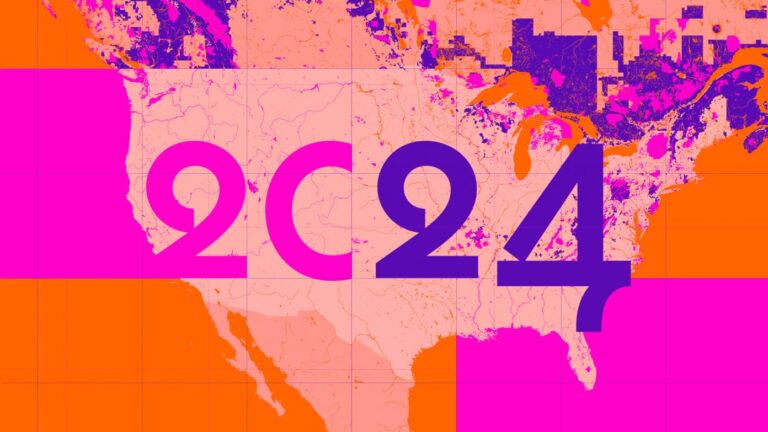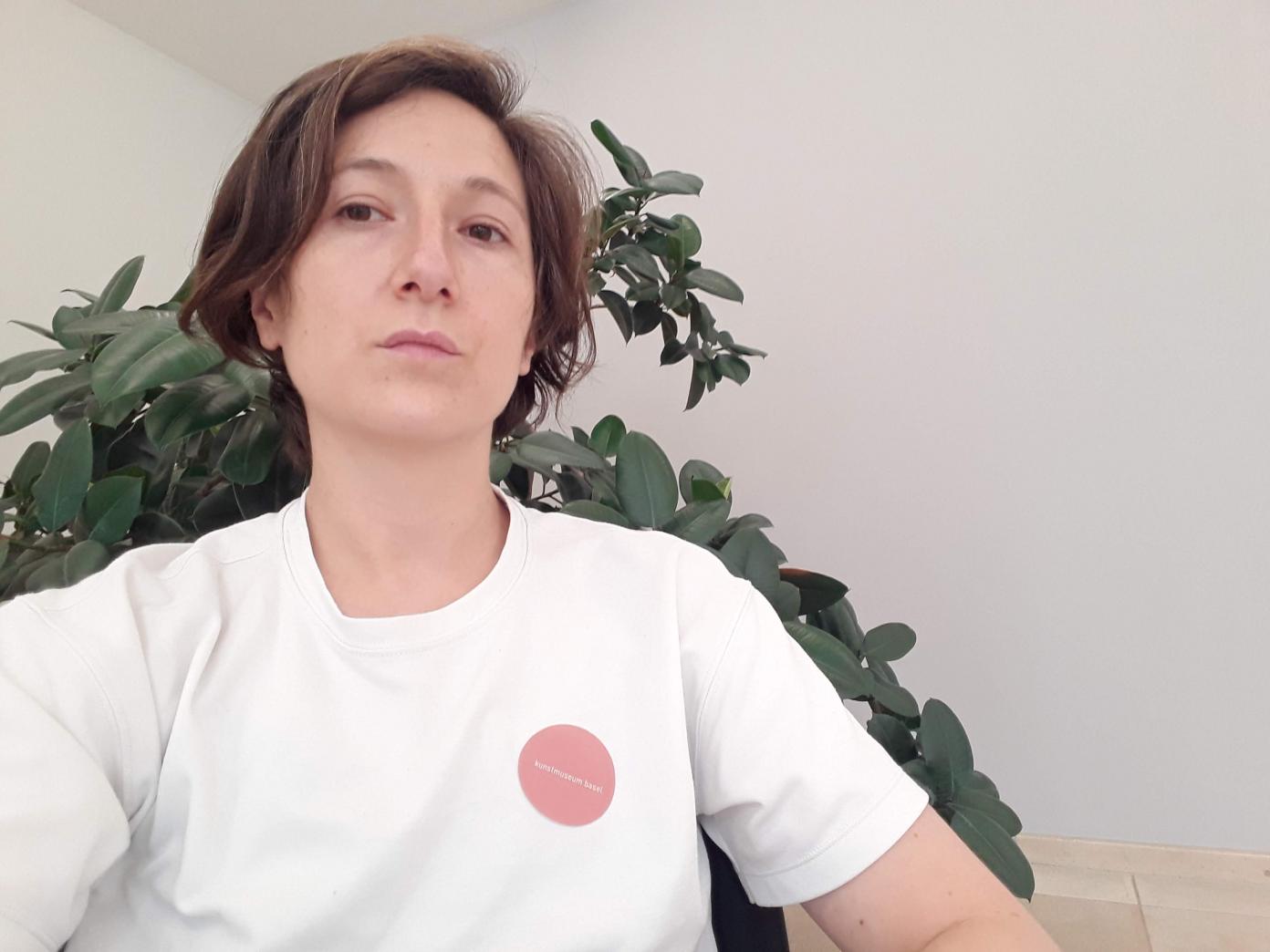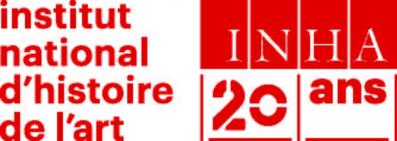
Meet Inaugural Beauford Delaney Grantee Vanina Géré
Art & Design

Vanina Géré
Villa Albertine and FACE Foundation, in partnership with the French Embassy in the United States and INHA, and with support from the Ford Foundation, is proud to announce the first recipient of the new Beauford Delaney Research Grant. This new grant has been awarded to art historian and critic Vanina Géré for her research project “Hacking Apparatuses of Control: Contemporary African-American Political Digital Practices (and beyond)”. Thanks to this unique initiative, she will receive $20,000 to cover expenses related to her research project in the US next year.
This new grant has been awarded to art historian and critic Vanina Géré for her research project “Hacking Apparatuses of Control: Contemporary African-American Political Digital Practices (and beyond).” Thanks to this unique initiative, she will receive $20,000 to cover expenses related to her research project in the US next year.
The 2021 edition
The jury for the 2021 Beauford Delaney Research Grant was composed of: Éric de Chassey, General Director, INHA; Anne Lafont, Director of Studies, EHESS; Richard Powell, Professor of Art History, Duke University; France Nerlich, Director of the Department of Studies and Research, INHA; and Anne-Claire Duprat, Cultural Services, French Embassy in New York, now Villa Albertine.
The awarding of the grant took place during the 2021 Art History Festival on June 6, 2021.
Vanina Géré’s project
The recipient of the 2021 edition of the Beauford Delaney Research Grant, Vanina Géré, will carry out a project entitled ‘Hacking Apparatuses of Control’: Contemporary African-American Political Digital Practices (and beyond).
For her research, Géré is looking forward to meeting and discussing with many artists as well as curators and writers. After beginning her research in Summer 2021, she plans to travel to New York, Chicago, Philadelphia, London, Los Angeles, and Berlin, and to conduct her research in collaboration with major institutions like Electronic Arts Intermix, the Whitney Museum, MoMA, the Kadist Foundation, MOCA Chicago, the Brooklyn Museum, LACMA, MOCA LA, the School for Poetic Computation, Studio Museum Harlem, Powerplant, the Hammer Museum, and more.
Within the context of increased visibility for Black struggles for social justice in the US (#BlackLivesMatter, 2013) and ever-clearer exposure of the myth that computer and digital technologies are sociopolitically “neutral,” the continuum between historic apparatuses of control and contemporary technologies of surveillance targeting African-Americans—from historic slavery to present-day police violence—has been clearly highlighted by a range of academic and activist works over the past decade.
The research project aims at providing a view of contemporary practices by African-American and Afro-diasporic artists active in the United States who question computer technologies, software, and/or hegemonic digital cultures, with race (as well as gender and sexual identity) as a central concern. The majority of the 12 artists selected for this research project use code, software creation, computer programming, 3D animation or virtual reality as part of their multimedia practice; many of them conceive of computer and digital technologies at the intersection with community organization and (h)ac(k)tivism. Though by no means homogeneous, their work is resonant within a coherent network that brings to the fore political art and a critique of the “farewell to the world” that characterizes the digital age, and they all bring a strong, radical political presence to the current North American and international art scene.
A transdisciplinary approach will be brought to the research project, which will rely on software and code studies as well as African-American studies and contemporary art history. A broader perspective will also be brought through dialogue with a number of curators and writers who have been active in the promotion of some of these artists in particular, and of political digital arts in general.
The members of the jury particularly appreciated the project for how it precisely outlined the contours of its subject, its corpus, and its central research question. They noted the clarity of the methodological presentation and admired the quality of the art outlined by the critical historian. By the end of the jury’s discussion, Vanina Géré’s research project had stood out particularly for its scientific ambition and its focus on new or unpublished corpora.
About Vanina Géré
Vanina Géré is a specialist in contemporary American art. Her work examines the relationship between art and politics and would not exist without feminist art history and African American studies.
An alumna of the ENS-Lyon and holder of a PhD in Anglophone Studies from the University of Paris 3 Sorbonne Nouvelle, she is the author of the first monograph in French on the work of the American visual artist Kara Walker (Les mauvais sentiments: l’oeuvre de Kara Walker, published by Presses du réel in 2019) and has studied the work of American writer Sarah Schulman. Her current research centers on software studies.
She teaches art history at the Villa Arson and previously taught at the Ecole Nationale Supérieure d’Art de Nancy. Her pedagogical work focuses on the tools of emancipation, particularly feminist self-defense.
Learn more about the Beauford Delaney grant
In partnership with

Ford Foundation
The Ford Foundation is an independent organization working to address inequality and build a future grounded in justice. For more than 85 years, it has supported visionaries on the frontlines of social change worldwide, guided by its mission to strengthen democratic values, reduce poverty and injustice, promote international cooperation, and advance human achievement. Today, with an endowment of $16 billion, the foundation has headquarters in New York and 10 regional offices across Africa, Asia, Latin America, and the Middle East.

FACE Foundation
FACE Foundation is an American nonprofit organization dedicated to supporting French-American relations through innovative cultural and educational projects. In partnership with the Cultural Services of the French Embassy in the United States, FACE Foundation promotes artistic, literary, and educational exchange and collaboration between creative professionals from both countries. With additional corporate, foundation, and individual support, FACE Foundation administers grant programs in the performing and visual arts, cinema, translation, and secondary and higher education, while providing financial sponsorship to French-American festivals and other cultural initiatives. FACE Foundation focuses on new and recent work of living artists and the promotion of bilingualism and the French language.

Institut National d’Histoire de l’Art (INHA)
The INHA is a leading research institute dedicated to art history. It welcomes scholars and curators from all horizons and offers free access to one of the largest art history libraries in the world. Its scientific programs cover fundamental research from antiquity to the present day and address issues that concern our society today. The INHA supports research through a wide range of invitation programs, grants and scholarships.


